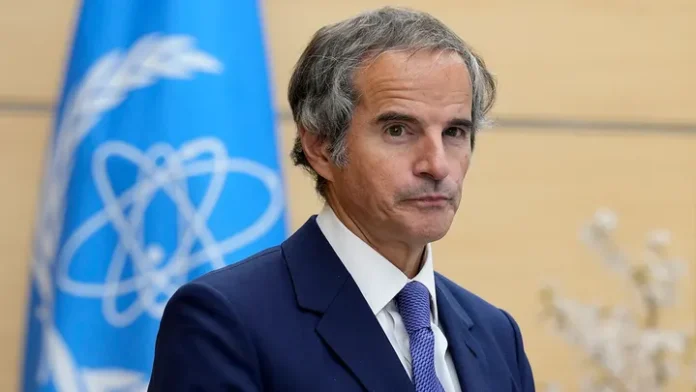The head of the United Nations’ atomic watchdog, Rafael Mariano Grossi, embarked on a crucial trip to Iran on Monday, confronting mounting challenges in monitoring the country’s swiftly advancing nuclear program.
Against a backdrop of escalating tensions fueled by the Israel-Hamas conflict, Grossi’s visit underscores the urgent need for diplomatic solutions to mitigate nuclear proliferation risks in the volatile Middle East region.
Grossi’s warning about Iran’s capability to produce “several” nuclear bombs, coupled with the acknowledgment of limitations in monitoring clandestine enrichment activities, highlights the gravity of the situation.
Amid reports of recent attacks near sensitive nuclear sites in Isfahan, where Grossi is slated to attend an Iranian nuclear conference, the stakes have never been higher for international efforts to safeguard against nuclear proliferation.
The deterioration of relations between Iran and the International Atomic Energy Agency (IAEA) traces back to the unilateral withdrawal of the United States from the Iran nuclear deal in 2018, under then-President Donald Trump.
Since then, Iran has progressively abandoned the deal’s constraints, enriching uranium to levels approaching weapons-grade purity, a development that has further strained cooperation with the IAEA.
IAEA surveillance efforts have been hampered by disruptions to surveillance cameras, while Iran has restricted access for experienced inspectors, exacerbating concerns about the transparency of its nuclear activities.
The remarks by Iranian nuclear physicist Mahmoud Reza Aghamiri, suggesting the relative ease of nuclear weapon production, underscore the urgency of addressing proliferation risks.
Aghamiri’s comments also reflect a growing chorus within Iran, including lawmakers and military officials, hinting at the potential for a shift in Tehran’s stance on nuclear weapons.
While Iran’s Supreme Leader, Ayatollah Ali Khamenei, has previously declared nuclear weapons forbidden under Islamic law, voices within the country hint at the possibility of revisiting this stance if geopolitical dynamics evolve.
Iranian diplomats have long cited Khamenei’s pronouncements as binding religious edicts against nuclear weapons development. However, the evolving discourse raises questions about the resilience of this position in the face of escalating regional tensions and perceived threats to Iran’s security.
In a 2006 speech, Khamenei emphasized Iran’s rejection of nuclear weapons, framing the country’s nuclear capabilities as rooted in faith rather than military ambitions.
However, the shifting geopolitical landscape and persistent diplomatic tensions cast doubt on the durability of this commitment, underscoring the urgent need for renewed dialogue and diplomatic engagement.
As Grossi prepares to update journalists in Vienna following his visit to Iran, the international community must redouble efforts to address the complex nexus of nuclear proliferation and regional security.
With tensions escalating and proliferation risks mounting, diplomatic initiatives aimed at restoring trust and transparency are essential to prevent further destabilization in the Middle East.
This article was created using automation and was thoroughly edited and fact-checked by one of our staff editorial members

